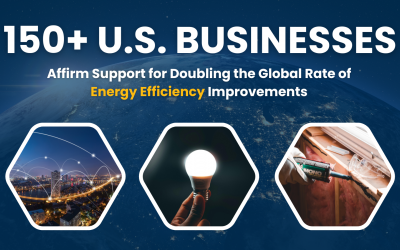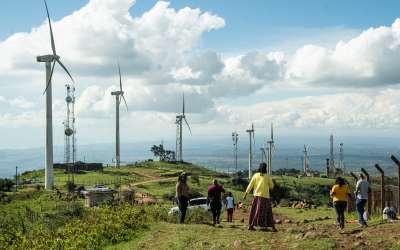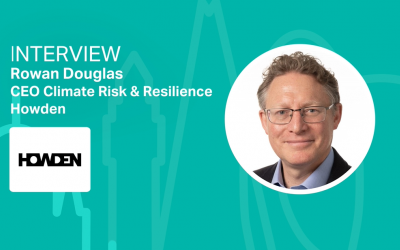Public-private partnership helps communities bridge gap between climate data and resiliency planning
Climate change is accelerating the intensity and frequency of extreme weather across the globe, with increasing risks to communities and businesses

PRESS RELEASE – New York, US– 22 September, 2016 — Climate change is accelerating the intensity and frequency of extreme weather across the globe, with increasing risks to communities and businesses. The White House Office of Science and Technology Policy (OSTP), World Resources Institute (WRI), U.S. Global Change Research Program (USGCRP) and a network of partners today launched the Partnership for Resilience and Preparedness (PREP) to help communities, companies and investors use data to improve climate resilience planning.
Harnessing the data revolution to improve climate resilience efforts will require a diverse set of partners including government, civil society, the private sector, and international organizations.
“Understanding the threats posed by climate change and extreme weather are critical to protecting people, homes, businesses and livelihoods. Data must be part of the solution,” said Janet Ranganathan, Vice President for Science and Research, WRI. “PREP will leverage open data and open-source computing to help planners build resilience in their communities by connecting those making decisions with the data they need, in a format they can use. Harnessing the data revolution as a force for good to strengthen climate resilience will only be possible with partnerships across government, civil society, the private sector and community organizations.”
PREP collaborating partners working on platform development include WRI, NASA, NOAA, U.S. Department of the Interior, Amazon Web Services, CARTO, Descartes Labs, Earth Knowledge, Esri, Google Cloud Platform, Google Earth Engine, Sonoma County Climate Resilience Team and Vizzuality. In its interagency capacity, USGCRP will act as the government-coordinating partner. Additional working group collaborators include Earth Science Information Partners, Forum One, Future Earth, Group on Earth Observations, Microsoft and The Weather Company (an IBM Business).
PREP, which emerged out of the Climate Data Initiative, seeks to empower a data-driven approach to building climate resilience by:
- Engaging communities to identify data needs.
- Identifying and reducing the barriers to access, contribute, and use data and information products for climate resilience.
- Developing an open-source platform to enhance access to and usability of climate-relevant data and information.
- Translating data into actionable information to help inform planning decisions for people on the ground and providing access to the necessary tools and functionality communities need – data availability alone is not enough.
- Providing data translators with easy access to usable data they need in order to develop the decision-support tools needed to inform and build climate resilience.
"PREP is about reaching not just across the federal government, but across the public and private sectors, seeking out the best talent, the best capabilities to turn Earth science data into accessible information,” said Dr. Ellen Stofan, Chief Scientist, NASA. “And nothing could be more critical than making this country, and countries around the world, more resilient to the effects of climate change."
While the world urgently needs to develop and harness data to better understand how climate change is affecting local communities, climate data is often inaccessible, trapped in silos, or too technical to use. Government and private sector planners typically have to rely on static reports or sort through hundreds of sources with conflicting or confusing data, often without guidance on what data exists, which data to use for projections, where data comes from, or if it is outdated.
Sponsored Content
Conversely, federal agencies have a vast supply of data, updated frequently from satellites and other sources, without a direct connection to the users who need it. And governments often don’t know the specific data needs of planners – meaning information may be discarded without knowing its value.
PREP seeks to bridge this gap by launching a beta platform, http://www.prepdata.org, to provide local governments with dynamic data, climate reports, and projections directly sourced from NASA, NOAA, and others as they become available. The platform will be open-source and technology agnostic to suit the needs of all users. PREP seeks to empower users to pull information relevant to their community into data-driven dashboards that can better guide climate adaption decisions.
Government partners like NASA, NOAA and DOI will provide global climate data and modeling, private technology partners will provide additional data and engineering support, and civil society groups will help engage users to understand their needs. WRI is the non-government partnership coordinator, focused on developing the beta PREP platform, which is powered by Resource Watch, an open architecture data system. In its interagency capacity, USGCRP will act as the government-coordinating partner.
The PREP beta platform is launching with domestic and international collaborators including Sonoma County, California; the Washington State Climate Impacts Group; Porto Alegre, Brazil; and the U.S. National Climate Assessment team. PREP plans to scale up after launch with testing in other communities around the global over the next 12 months.
“Sonoma County is in the midst of experiencing climate change and that means higher temperatures, more extreme rainfall events and prolonged droughts. PREP has helped our community work together and integrate climate risk data into one central online tool that is available to our whole community,” said Efren Carrillo, Chairman of the Sonoma County Water Agency. “Before PREP, this data had no single home; instead it was fragmented amongst our government agencies and community organizations. Our urban planners, farmers and community now have the ability to plan for the future with this critical PREP climate resiliency tool.”
PREP will seek to expand data transparency so planners know if data comes from governments or commercial entities, clarifying data sources from the start to distinguish which data are most useful. Users will be able to share their plans, learn from others, and pull government data from multiple global datasets for specific locations. PREP will also promote data publication standards – especially from government entities – ensuring published data formats and data types produced by agencies are useful for long-term planning.
The ability to create customized climate risk dashboards is expected to be fully ready and publicly available for any user within one year. In the interim, the partnership will continually add datasets and case studies as available.
For more information visit www.prepdata.org.






